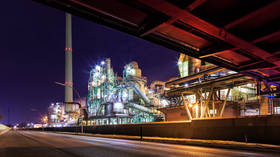Germany’s skilled labor shortage worsens

The deficit of qualified workers in Germany is getting worse, according to the latest Business Survey conducted by the Munich-based Ifo Institute among nearly 9,000 German corporations.
The results of the poll, released on Wednesday, show that over 43% of respondents reported a deficit of skilled employees in July, up from just over 42% recorded in April. An all-time high of nearly 50% was reached in July 2022.
“Despite a sluggish economy, many companies are still desperately searching for suitable employees,” says Ifo expert Stefan Sauer.
According to the survey, the service sector has been hit particularly hard with more than 75% of legal and accounting firms not finding the applicants they need, while nearly two-thirds of companies in transportation, architecture, and engineering report a shortage of qualified workers, marking a new high for those sectors.
More than 43% of IT equipment manufacturers and about 41% of machinery and equipment makers polled by the Ifo Institute reported they were affected by the shortage. The overall number for the manufacturing industry improved slightly to just under 35%.
Raging inflation has pushed Germany into recession in the first three months of the current year, as the EU’s biggest economy has been significantly affected by reduced energy supplies from Russia.
In June, the Ifo institute reported worsening business sentiment, adding that the nation faced the prospect of a longer downturn as domestic demand and exporters' expectations both weakened. Analysts expect the German economy to contract by 0.3% this year, cautioning it will likely rebound only in 2024.
For more stories on economy & finance visit RT's business section













